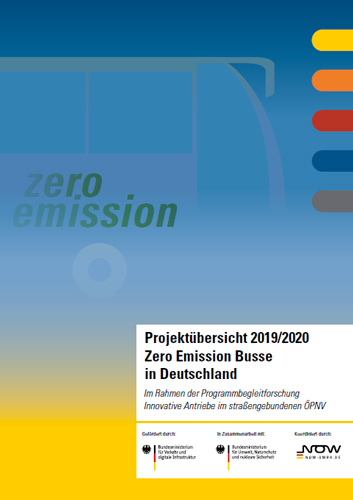Public transport is a key element within the mobility concepts of the future, both for cities as well as for the connection with the regional areas. Already today, public transport in Germany conveys around 10 billion passengers annually. Its vehicles are more efficient, require considerably less space on the roads due to their higher passenger capacity and thus save important resources including time, money and energy.
Due to their high operating distances and predominantly diesel propulsion, buses are nevertheless also sources of pollutants, especially in urban areas. A project overview on zero-emission buses in Germany now shows that public transport can also function as a zero-emission solution. It was compiled by Sphera (formerly thinkstep) under the coordination of NOW GmbH as part of the “Innovative drive systems in road-based public transport” accompanying research.
The overview brings together detailed information on electric bus projects currently funded by the federal government for the respective transport companies. It takes into account projects funded by the Federal Ministry of Transport and Digital Infrastructure (BMVI – Bundesministerium für Verkehr und digitale Infrastruktur) within the scope of the Electric Mobility (EM) funding guidelines, the Clean Air Immediate Action Programme (Sofo – Sofortprogramm Saubere Luft), the National Innovation Programme Hydrogen and Fuel Cell Technology II (NIP II) and the Mobility and Fuels Strategy of the Federal Government (MFS). The overview also includes the projects supported by the Federal Ministry for the Environment, Nature Conservation and Nuclear Safety (BMU – Bundesministerium für Umwelt, Naturschutz und nukleare Sicherheit) within the framework of the funding guidelines for the procurement of electric buses for local public transport.
Download the “Zero Emission Buses” brochure [PDF, in German]



